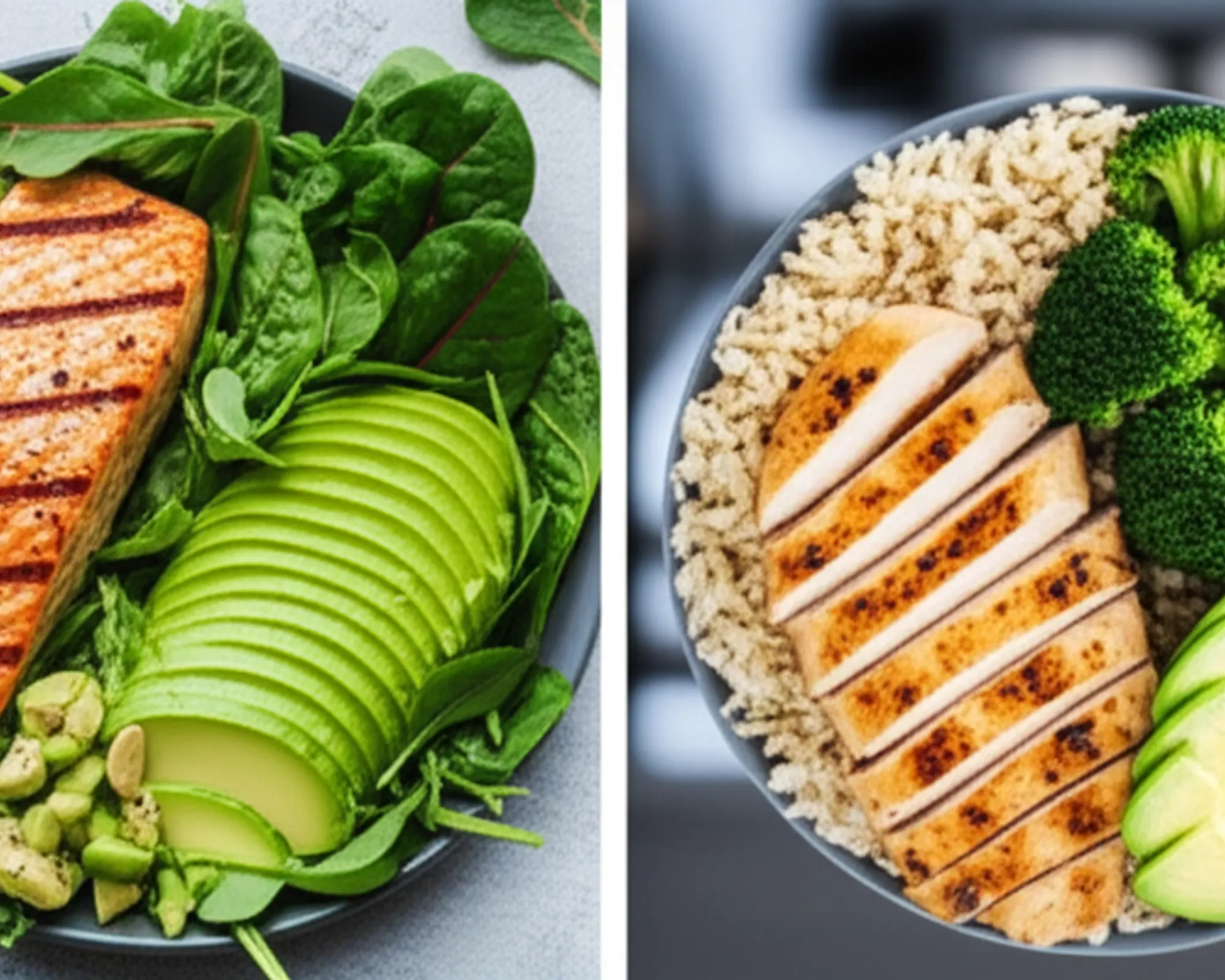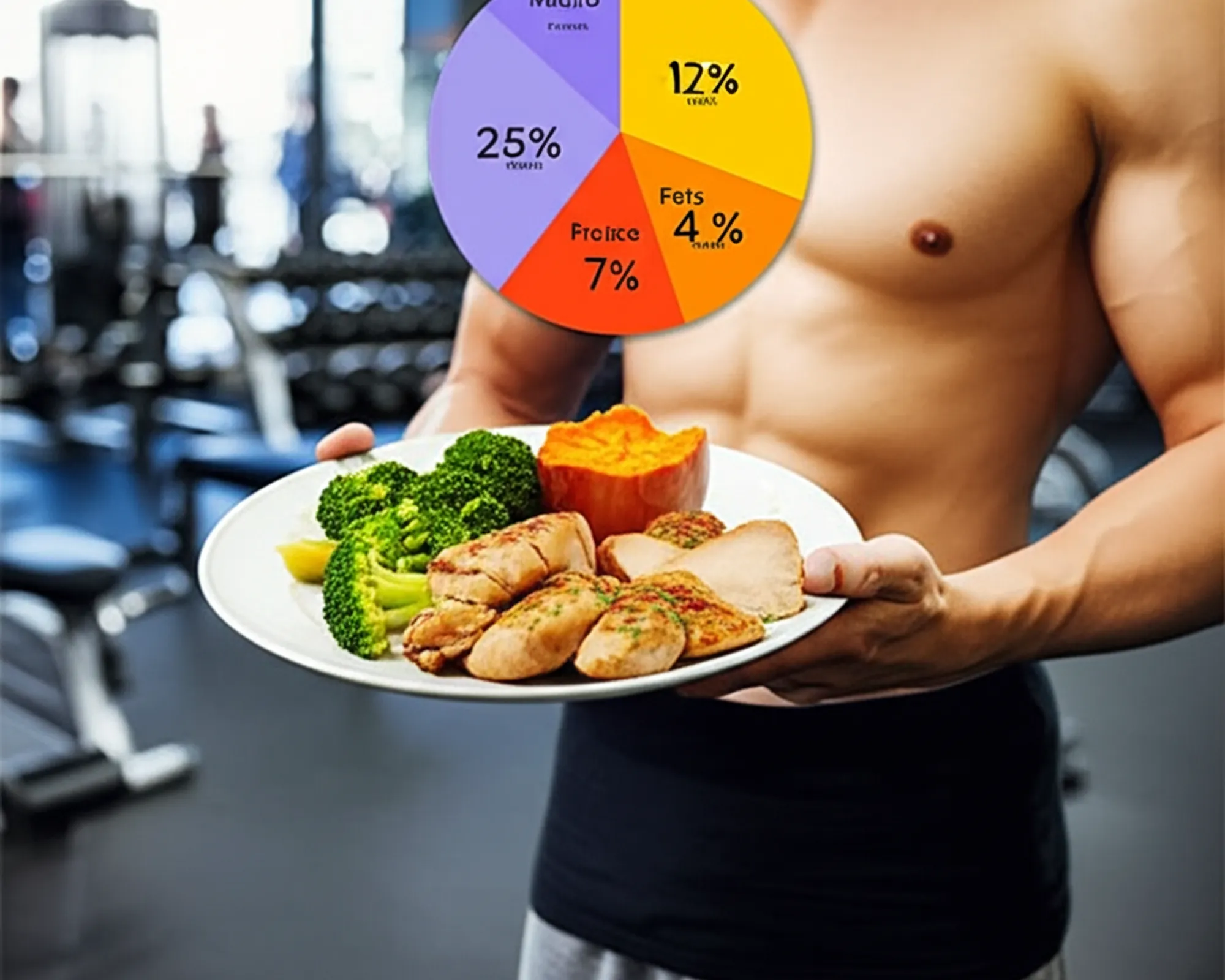High-Protein Foods for Muscle Growth

When it comes to building a strong, muscular physique, protein isn't just important—it's paramount. Often dubbed the building blocks of life, proteins are essential macronutrients composed of amino acids, which are critical for virtually every bodily function, including the repair and growth of muscle tissue. For anyone serious about increasing muscle mass, optimizing their protein intake through high-quality food sources is non-negotiable. This comprehensive guide delves into why protein is so crucial for muscle hypertrophy and highlights the best high-protein foods to include in your diet.
The Indispensable Role of Protein in Muscle Growth
Muscles are constantly undergoing a process of breakdown and repair, especially after strenuous exercise. When you lift weights or engage in resistance training, you create microscopic tears in your muscle fibers. Protein steps in to facilitate the repair of these tears and, in doing so, helps your muscles grow back stronger and larger than before—a process known as muscle protein synthesis (MPS). Without adequate protein, your body lacks the necessary raw materials to repair and rebuild, hindering your progress and potentially leading to muscle loss.
Furthermore, protein plays a vital role in hormone production, enzyme function, and immune system health, all of which indirectly support your fitness goals. A consistent supply of amino acids ensures your body remains in an anabolic (muscle-building) state, preventing catabolism (muscle breakdown) that can occur during periods of intense training or caloric deficit.
How Much Protein Do You Really Need?
While general dietary guidelines suggest a certain amount of protein, individuals focused on muscle growth typically require more. The commonly recommended range for active individuals aiming for muscle hypertrophy is around 1.6 to 2.2 grams of protein per kilogram of body weight per day (or approximately 0.7 to 1.0 gram per pound of body weight). For example, a 180-pound individual might aim for 126-180 grams of protein daily. Spreading this intake throughout the day across multiple meals and snacks is often more effective than consuming it all in one sitting, as it provides a steady supply of amino acids to your muscles.
Top High-Protein Foods for Optimal Muscle Growth
Animal-Based Protein Sources
Animal proteins are considered complete proteins, meaning they contain all nine essential amino acids that your body cannot produce on its own. They are highly bioavailable, making them excellent choices for muscle building.
- Chicken Breast: A lean, versatile, and affordable protein powerhouse. A 3.5-ounce (100-gram) serving of cooked chicken breast provides approximately 31 grams of protein with minimal fat. It's a staple for a reason, easily incorporated into salads, stir-fries, or as a standalone meal.
- Lean Beef: Rich in protein, iron, and B vitamins, lean cuts of beef like sirloin or flank steak are excellent for muscle growth. A 3.5-ounce serving can offer around 26 grams of protein. Red meat also contains creatine, a compound beneficial for strength and power.
- Salmon and Other Fatty Fish: Beyond their impressive protein content (around 20-25 grams per 3.5 ounces), fatty fish like salmon, mackerel, and tuna are packed with omega-3 fatty acids. These healthy fats reduce inflammation, support joint health, and may even aid in muscle protein synthesis.
- Eggs: Often called nature's perfect protein, one large egg contains about 6 grams of high-quality protein, with essential amino acids found in both the yolk and the white. Eggs are incredibly versatile, inexpensive, and easy to prepare, making them an ideal breakfast, snack, or meal component.
- Greek Yogurt: This strained yogurt boasts nearly double the protein of regular yogurt, with typically 15-20 grams per 6-ounce serving. It's also a good source of calcium and probiotics, supporting bone health and gut function. It's great on its own, with fruit, or as a base for smoothies.
- Cottage Cheese: Another dairy champion, cottage cheese is high in casein protein, a slow-digesting protein that provides a sustained release of amino acids, making it an excellent choice before bed to prevent muscle breakdown during sleep. A half-cup serving can contain 12-14 grams of protein.
- Whey Protein Powder: While not a whole food, whey protein is a highly convenient and effective supplement, especially post-workout, due to its rapid absorption. A single scoop typically delivers 20-25 grams of protein and is an easy way to boost your daily intake.
Plant-Based Protein Sources
For vegetarians, vegans, or those looking to diversify their protein sources, the plant kingdom offers an abundance of protein-rich foods. Combining different plant proteins throughout the day can ensure you get all essential amino acids.
- Lentils and Legumes: Beans, lentils, chickpeas, and black beans are stellar sources of plant-based protein and fiber. One cup of cooked lentils provides about 18 grams of protein. They are also rich in complex carbohydrates, providing sustained energy for workouts.
- Tofu and Tempeh: Derived from soybeans, tofu and tempeh are complete proteins. Tofu is versatile and absorbs flavors well (around 10-15 grams of protein per half-cup), while tempeh is fermented, offering a firmer texture and slightly more protein (around 15-20 grams per half-cup) along with probiotics.
- Edamame: These young soybeans can be enjoyed steamed, roasted, or added to salads. One cup of shelled edamame contains about 18 grams of protein and is also a good source of fiber and essential vitamins.
- Quinoa: Unique among grains, quinoa is a complete protein, offering about 8 grams of protein per cooked cup. It's also gluten-free and rich in fiber, iron, and magnesium, making it a nutritious alternative to rice or pasta.
- Nuts and Seeds: While higher in healthy fats, nuts (almonds, walnuts, pistachios) and seeds (chia, flax, hemp, pumpkin) contribute significantly to protein intake. For example, 1 ounce of almonds contains about 6 grams of protein, and 2 tablespoons of hemp seeds offer 10 grams.
- Seitan: Made from wheat gluten, seitan is often called 'wheat meat' due to its chewy texture and high protein content (around 25 grams per 3.5 ounces). It's very low in fat and carbohydrates but should be avoided by those with gluten sensitivities.
- Plant-Based Protein Powders: Pea, rice, soy, or hemp protein powders can be convenient for boosting protein intake, especially for vegans. They can provide 20-25 grams of protein per serving and are excellent for smoothies or shakes.
Incorporating High-Protein Foods into Your Diet
Making protein a priority doesn't have to be complicated. Here are some practical tips:
- Prioritize Protein at Every Meal: Aim to include a significant protein source in your breakfast, lunch, and dinner.
- Strategic Snacking: Opt for protein-rich snacks like Greek yogurt, a handful of nuts, hard-boiled eggs, or a protein shake between meals.
- Meal Prep: Cook larger batches of lean meats, fish, or legumes at the beginning of the week to ensure easy access to protein.
- Vary Your Sources: Don't rely on just one or two protein sources. A diverse diet ensures you get a wide range of amino acids and other nutrients.
- Listen to Your Body: Adjust your protein intake based on your activity level, training intensity, and how your body responds.
Beyond Protein: A Holistic Approach
While protein is crucial, remember that muscle growth is a complex process that also requires adequate carbohydrates for energy, healthy fats for hormone production, sufficient sleep for recovery, and consistent progressive overload in your training. Think of protein as a key pillar, but not the only one, in your muscle-building journey.
Conclusion
Fueling your body with high-protein foods is fundamental for effective muscle growth and recovery. By consciously incorporating a variety of both animal-based and plant-based protein sources into your daily diet, you provide your muscles with the essential building blocks they need to adapt, repair, and grow stronger. Combine this nutritional strategy with a well-structured training program and adequate rest, and you'll be well on your way to achieving your muscle-building goals and maximizing your physical potential.


